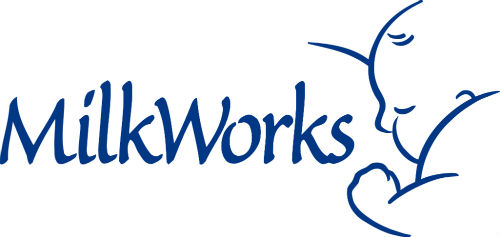In the early days of MilkWorks, when insurance coverage for breast pumps was but a dream, moms shared breast pumps, bought them at garage sales, and often purchased pumps that did little more than leave them with very sore nipples (and no milk!). The Affordable Care Act (ACA) changed all of that when it introduced Women’s Preventive Health Services. Insurance plans are now required to provide new mothers with breast pumps. When babies are fed human milk, they develop fewer acute and chronic health conditions, resulting in decreased health care costs - a major goal of the ACA.
The ACA also amended the Fair Labor Standards Act. Employers of hourly employees must now provide private spaces and reasonable breaks for mothers to use a breast pump. For many mothers in America, the ACA made a huge difference in their lives. That is, unless you are a mother who also happens to work in a prison.
I remember a conversation I had with a young mother back in the early days of MilkWorks. She worked hard to bring in her milk supply and make breastfeeding work. As her baby neared six weeks, she prepared to wean her baby. After all, she was returning to work at the Penitentiary, and “NO ONE returns to work at the Penitentiary and continues to breastfeed.” The bathrooms were disgusting and there were no private spaces to pump. She thought it would be easy to wean her baby, but it wasn’t. With the determination of a new mother protecting her baby, she approached the warden who responded, “Why don’t you use my office? I never use it anyhow!”
Fast forward to 2019. I was surprised to read in the New York Times that breast pump parts are being smuggled into prisons across the country. Many women employed in prison settings are being denied the ability to bring a breast pump to work. At Deerfield Correctional Center in Virginia, female employees break down their pump parts and, piece by piece, smuggle them in so that they can return to work AND breastfeed their babies.
According to a recent report from the University of California Hastings College of Law, there are still five million women of childbearing age without the right to pump at work. Many mothers employed in prisons are part of this group. In addition, there are no federal regulations that protect the right of a baby, born to an imprisoned mother, to receive breast milk.
Like numerous other medical and public health experts, the National Commission on Correctional Health Care has called for accommodations for breastfeeding mothers in custody to help them maintain their milk supply. They advocate for lactation counseling, adequate nutrition for pregnant and breastfeeding mothers, allowing mothers to spend time with their newborns to establish their milk supply, and access to a breast pump for on-going milk removal.
More than 200,000 women are incarcerated in prisons and jails, in the United States. The vast majority are of childbearing age. It is estimated that 8% of them are pregnant when they enter custody. Hundreds of babies are born behind bars every year. Some of their mothers may not be able to breastfeed them if they are actively withdrawing from drug use. But many mothers want to breastfeed, and their babies deserve the right to be breastfed, even if their mother is imprisoned.
Children born to mothers in the penal system face plenty of challenges in life. Why must we add one more? Our goal should be to give them the best start. They did not choose to be born to a mother in prison. We can help their mothers provide them with the best nutrition, and a chance to feel cared for.
More and more babies are breastfed in our country. When MilkWorks opened its doors in 2001, a mere 10% of mothers in Nebraska breastfed exclusively for six months. This rate is now around 22%. At the same time, we continue to find pockets of mothers and babies who need some extra support, or face unusual barriers when it comes to breastfeeding.
It’s pretty amazing that prison employees have to smuggle their breast pump parts into correctional settings, but it’s downright sad that we do not allow the infant of a mother in custody to receive breast milk. Looks like we now have one more barrier to overcome to create a healthy community for ALL of our babies.
